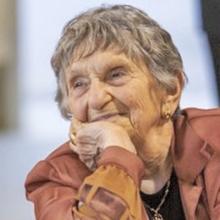Local News
‘STAND-UP NATION” – New book highlights Israel’s many contributions to world through international development
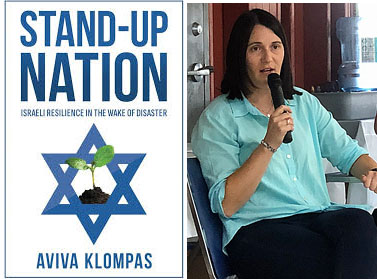
Review by BERNIE BELLAN Elsewhere on this website we have a story about an event that was sponsored by JNF Canada at Camp Massad on Sunday, September 1, during which the guest speaker was someone by the name of Aviva Klompas.
As we noted in that story, Klompas is the author of a recently published book whose title, “STAND-UP NATION” is an unabashed emulation of the wildly successful ‘”START-UP NATION,” which was published in 2009.
As I noted in my review of ‘START-UP NATION” in the December 16, 2009 issue of The Jewish Post & News, “This book, simply put, is one of the most uplifting pieces of writing about Israel that has come out in a very long time. For anyone who is a strong supporter of Israel, the stories that (Dan) Senor and (Saul) Singer relate about Israel’s emergence as a high-tech superpower will be reminiscent of past stories about Israel’s military brilliance.”
Fifteen years later, Klompas adopts a very similar style that Senor and Singer employed in their book, which was to provide a series of case studies that illustrated how Israeli creativity and entrepreneurship combined to turn Israel into an economic success story.
While “START-UP NATION” suggested that Israel’s brilliance in the economic sphere was something that had only been a relatively recent development – beginning in the 1990s and fuelled largely by the influx of massive numbers of Russian immigrants, Aviva Klompas’s thesis is that Israel has had a tradition of international development and aid from the very beginning of the foundation of the state.
Her book was 10 years in the making, she explained in an interviews she gave at a recently held event near Boston. It first took root when she was Israel’s sole speech writer at the United Nations (from 2013-15), she said. In that capacity, Klompas noted, she had to immerse herself in a whole range of subjects – including international aid and development – about which, she admitted, she knew very little prior to her period of service at the UN.
But, as she learned more about how much international aid development had been a part of the very fabric of Israel’s founding ethos – especially as it was promoted by Israel’s first prime minister, David Ben Gurion, Klompas began to develop an especially keen interest in finding out as much as she could about how Israel came to be one of the very first nations that advanced the notion of international development in third world countries.
As Klompas explains in the book, the tremendous challenges that the newborn State of Israel faced in the first two years of its existence – when it absorbed over 800,000 new immigrants comprised of Holocaust survivors and refugees from Arab countries – leading to a doubling of Israel’s population almost overnight, “Despite the small population and lack of natural resources, the country’s leaders had big ambitions. Ingenuity and entrepreneurship were celebrated. Chutzpah took root as a national ethos. As time passed, the country’s confidence grew, and its citizens turned outward. They shared their success with other countries confronting similar challenges. With each passing decade, as Israel grew more secure and prosperous, it became a model and inspiration to developing countries that sought to achieve the same transformation.”
How Klompas came to write this particular book is an interesting story in itself. She said, during the interview that, after she left the UN, she began something called “Project Inspire,” in which she took young people on study tours to third world countries such as Kenya, Uganda, Nepal, Guatemala, and India.”
During those tours she encountered project after project that had been started by Israelis who had been inspired by a combination of idealism and experience. Of course, she uses the phrase “tikkun olam” quite often in her book, but that particular phrase is trotted out so often by Jewish organizations and is so general in its meaning that it loses its impact.
Instead, what Klompas does is tell a series of 20 different stories in which Israelis – often Americans who emigrated to Israel by the way, turn to using education and skills that they acquired in Israel into very imaginative projects in countries all around the world.
It was during the Covid epidemic that Klompas first thought of writing a book filled with stories of Israelis who had travelled to distant lands to initiate a variety of aid projects – often without any assistance at first, but then through a combination of fund raising and appealing to the governments of countries to which they had travelled, had achieved remarkable success almost always through their own ingenuity and resourcefulness,
What is so remarkable about many of these individuals is that their stories begin with travelling to a particular country, often backpacking – usually seeking adventure, and during the course of their experiences in those countries, they come to realize that they are well suited to providing exactly the sort of expertise that is so sorely needed in those countries.
Whether it’s in the areas of agriculture – which is a very common theme in the book, or often health care, Israelis time and time again have gone into some of the poorest parts of the world to offer assistance. And, in contrast to many other individuals from other countries that have also become involved in development projects, many of the Israelis profiled in “STAND-UP NATION” have stayed for years, rather than mere months. Often they’ve learned native languages – and customs, and rather than attempting to inject foreign concepts into the lives of the people with which they’re living, they adapt those concepts to native traditions.
Even after they’ve returned to Israel a great many of the individuals Klompas describes in the book have kept going back to the countries where they helped to initiate projects – often to check up on those projects or to begin new ones.
At the beginning of the book, Klompas describes Israel’s very first international development agency, known as MASHAV, and how it actually preceded international development agencies from countries such as the US, Canada, and Britain, as well as the UN’s own international aid agencies.
While Klompas does concede that, to a certain extent, MASHAV was intended to improve Israel’s image within third world countries, she notes that even to this day, MASHAV has training programs for thousands of individuals coming from countries that have been highly critical of Israeli policies – especially since Israel’s incursion into Gaza.
Given that the book was released only recently, Klompas often refers to how much Israel’s image in the world has changed for the worse since October 7. Yet, in a series of often poignant post scripts that she includes at the end of many of her chapters, Klompas quotes from many individuals who have either been working closely with Israelis in their respective countries or who have benefited from receiving training and education in Israel itself. In many of those excerpts from emails sent by various individuals, they remark upon how much anguish they feel for Israelis – also for Palestinians.
One question that did occur to me as I read this very well written book (and Klompas’s years of experience as a speechwriter shine through as she manages to imbue each story she tells with a freshness that keeps the book from bogging down into repetitiousness) is: How many of the many aid projects that had been undertaken by Israeli-based organizations have been severely affected by how badly Israel’s image has suffered in the past year? In many of the cases Klompas cites – and these were situations in which Israelis had gone to countries that either had no relations with Israel at all or had very poor relations with Israel, the Israelis going into those countries hid their identities as much as they possibly could.
Klompas also describes how Israeli disaster relief teams have gone into countries – such as Turkey and even Syria, to provide relief, often at great danger to the members of those teams.
One final note: Considering that Aviva Klompas was the special guest speaker at an event sponsored by JNF Canada Manitoba-Saskatchewan Region, and JNF Canada is now in the midst of a terrible situation in which its charitable license has been revoked by the CRA, I thought it appropriate to refer to a section of “STAND-UP NATION” in which Klompas writes about the many projects in which the JNF has been involved that have directly led to enormous benefits, not only for people in many third-world countries but, at least prior to October 7 – Palestinians from the West Bank and Gaza as well. (Again, I would have liked to know to what extent projects involving students from the West Bank and Gaza have now had to cut ties with students from those areas since October 7. What a tragedy.)
Klompas writes about the Central Arava Research and Development Centre, “which is developing new crops and improving existing techniques so farmers in the Arava Valley can compete in the global produce market;” about the Kasser Joint Institute for Food, Water, and Energy Security, “which develops techniques and technologies to aid communities in arid and hyper-arid low income countries in addressing their food, water, and energy insecurities cost effectively and sustainably;” about the Arava Institute for Environmental Studies, which brings together “students from Israel and Jordan, along with Palestinians from the West Bank and the Gaza Strip…who train together in the fields of sustainability and the environment;” and the Arava Institute for International Training, which is “attracting young men and women from developing countries all over the world.”
While Klompas doesn’t specify exactly how much the JNF has been involved in each of those projects, the point is that the JNF’s contributions to research in the areas of crop development in even the harshest, most arid conditions, have been of benefit not only to Israel, but to countries all over the world – also to Palestinians in the West Bank and Gaza. And to think: the CRA has questioned JNF Canada’s “charitable object.”
Just as Israeli international aid organizations have been motivated by a combination of a desire to do good – as in the concept of “tikkun olam,” also to a certain extent, Israel’s desire to improve Israel’s image in the third world, what difference does it make so long as all those individuals working in third world countries are contributing so mightily to the well being of the people with whom they are working?
The same can be said of JNF Canada. While the CRA may be nit picking individual projects in which JNF Canada has been involved, saying the paperwork trail is deficient, how can one question the incredible humanitarian contribution that the JNF has been making for years – in ways Klompas cites?
Perhaps at some point we’ll be able to find out from Klompas how each of the 20 projects she profiles in this very important book have been affected by what’s been going on in Gaza the past 11 months. But, if anyone needs to get a better idea how enormous an impact Israel has had in the area of international development – on a scale the country has had in the area of entrepreneurship – as described in ‘START-UP NATION,” read “STAND-UP NATION.”
“STAND-UP NATION…Israeli Resilience in the Wake of Disaster”
By Aviva Klompas
213 pages
Published by Wicked Son, 2024
Available at the JNF office in Winnipeg (phone 204-947-0207) or an Amazon.ca
Local News
Cheryl Hirsch Katz, Jewish Child and Family Service’s longest serving staffer, set to retire at end of the month
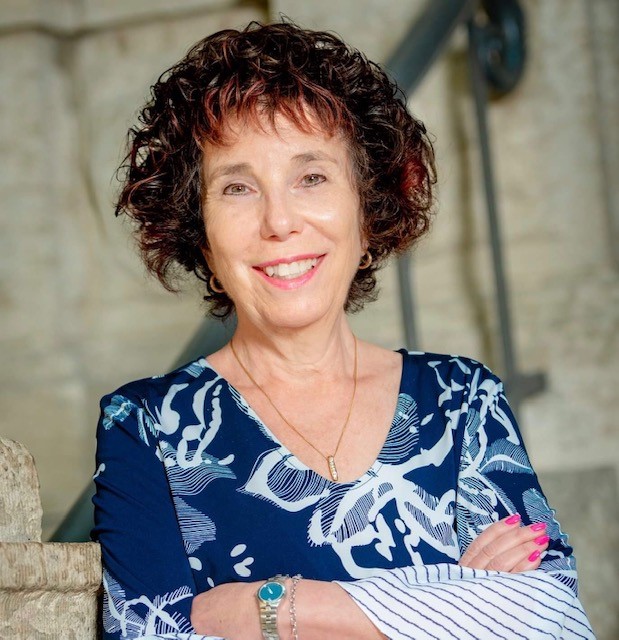
By MYRON LOVE “I loved working at Jewish Child and Family Service,” says Cheryl Hirsh Katz, who is due to retire at the end of June. “I have always appreciated the warm and welcoming atmosphere here. I feel that the people working here are my extended family. I am going to miss my colleagues”.
“I have derived great satisfaction over the years to have been able to help many people in our community of all ages through my work at JCFS,” she continues.
After 44 years at the agency, Katz, the longest-serving member of the staff, was given an appreciative send-off at the JCFS’s recent (June 23) Annual General Meeting at the Shaarey Zedek Synagogue.
The daughter of Art and Bess Hirsh, Cheryl grew up in Garden City. She attended Peretz School, then Jefferson Junior High and Garden City Collegiate. She joined the staff of JCFS in 1981, shortly after receiving her Bachelor of Social Work degree.
She earned an MSW in 1990.
“I chose to become a social worker,” she recalls, “because I always wanted to be able to help people.”
Katz was originally hired by JCFS to work with newcomers. After a couple of years, she was given responsibility for looking after the needs of older adults.
“I really enjoyed working in older adult services,” she says. “That is where I spent the bulk of my time at JCFS.”
After ten years as a case worker, she was promoted to a supervisory role. Later, she was also given responsibility for mental health and addictions programming and settlement services, while keeping the older adult files under her purview.
“As a supervisor, I wasn’t directly involved with individual clients,” she points out. “I was more involved with programming. Among the programs for seniors we organized were – for example – sessions on elder abuse, digital storytelling and memory loss.”
She notes that one of the trends she has seen over the last 44 years is that people are living longer and living in their homes longer. A lot more of our clients are living well into their 90s,” she observes. “We have had to continually expand our staff and the services we provide in order to accommodate the growing demands of an aging population.”
She also spoke of the mental health needs of seniors and aging Holocaust survivors.
She says that she has mixed feelings about leaving JCFS. “After so many years working full time, I am going to have to create a new routine,” she comments.
She notes that, now that she is retired, she will have more time to spend with her parents – who are in their 90s.
And then, there are the two dogs to look after. “I will have time now to try new activities,” she says. “ I might learn to play mah-jong.”
She speaks about maybe doing some traveling – although her husband, Murray, is still working full time.
(She and Murray have one daughter, Farah.)
“Retirement may also include some volunteering,” she adds.
It is quite likely, she will be continuing her association with JCFS but in a volunteer capacity.
Local News
Gray Academy students shine in provincial, national debating competitions
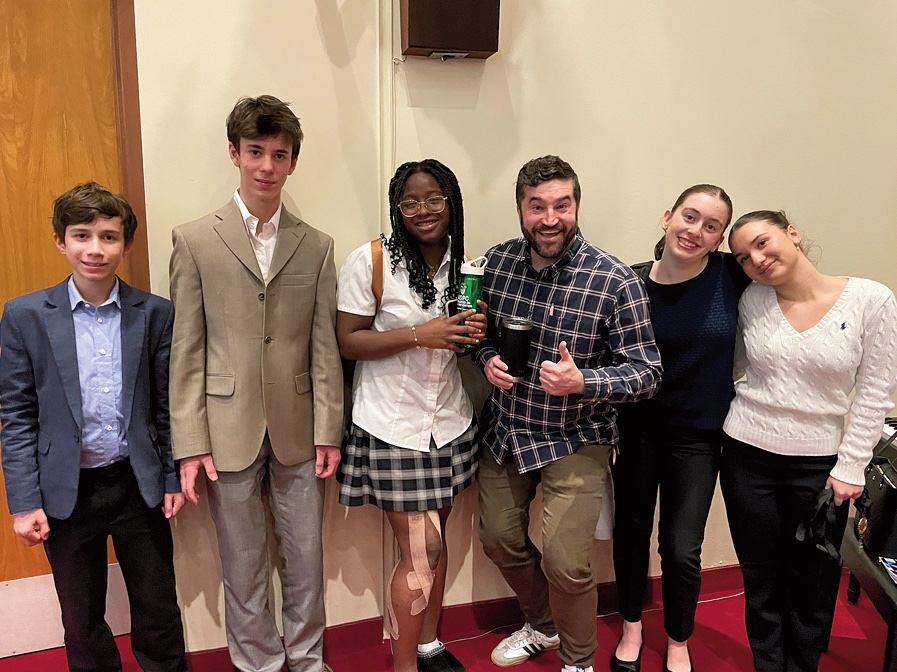
By MYRON LOVE It has been another good year for Gray Academy’s high school students who participated in provincial and national debating competitions. The best results were recorded by Grade 9 student Noa Mednikov, who finished fourth overall nationally, fourth in interpretive reading, and fifth in persuasive speaking at the junior National Public Speaking Championship in early May in Vancouver.
Last October, in the Junior Provincial British Parliamentary Championship – which was held at St. John’s-Ravenscourt – Noa and her partner, Raya Braunstein, finished third as a team while Raya placed third in individual debating.
Their fellow Grade 9 student Maxim Moscalenkov tied for first in persuasive speaking in Vancouver, while the Gray Academy team of Gabe Tapper and Aaron Koplovich finished fifth. Aaron also finished fifth in his individual debate.
Earlier, in March, Maxim finished fifth in the Provincial Juniors debating competition, which was held at Balmoral Hall He and his debate partner, Nate Shenkarow, finished seventh among the teams entered. Last November, he and partner, Ethan Tenenbein, finished seventh in the Junior Prepared Tournament – just behind the Gray Academy team of Nate Shenkarow and Jack Kay.
At the senior high level in that competition, the team of Jacob Tenenbein and Jonah Novoseller finished fourth and Jacob was recognized as fifth best in an individual capacity. Jonah and Jacob also paired up to win the Asper Cup, which was held at their home school.
Jacob represented Manitoba at the Junior National Speech Championship in Vancouver in May and, last October, he and Grade 12 Gray Academy students Julie Krozkin and Daniel Bokser represented Canada at an international debating tournament in Bermuda.
Gray Academy’s debating program was introduced by Linda Martin in 2003. She also led the debating teams at Balmoral Hall. In 2011, Martin was succeeded by Gray Academy high school English teacher Andrew Kaplan.
“Andrew has done a wonderful job with the debating program” says Martin, who has a debating trophy at Gray Academy named in her honour, as well as a provincial trophy for best individual junior debater. “Over the years, Gray Academy students have done very well in many local, national and international competitions,” she adds.
About three weeks ago, this writer had the opportunity to sit down with Andrew Kaplan and six of the school’s top debaters while they discussed the benefits of learning how to debate. According to Noah Strauss – who competed in the Junior Provincials at Balmoral Hall in March, public speaking leaves him with a feeling of accomplishment.
“It’s a good skill set to have,” he observes. “It builds confidence.”
“A benefit of being able to debate is that you learn how to convince people that you know what you are talking about,” adds Maxim Moscolenkov.
Raya Braunstein notes that being able to debate is a skill that she expects to be helpful in many university courses which she may choose to take.
As Andrew Kaplan notes, the ability to express yourself has a great impact in whatever career you choose to pursue.
He points out that debating is compulsory at Gray Academy for all Grade 7 and 8 students – and students can continue debating as an option in the higher grades
Of course, competitive debating is not for everyone. For those students who opt to take that path, the journey begins with internal school debate competition – with the top debating teams and individuals qualifying for local tournaments and – potentially – beyond.
Andrew Kaplan reports that a small number of high schools in Winnipeg and southern Manitoba have active debating programs – including St. Johns Ravenscourt, St. Paul’s High School, St. Mary’s Academy, Garden City and Maples Collegiates in the Seven Oaks School Division, St. Maurice (a Catholic School), as well as Morden Collegiate and Dasmesh, a Sikh private school.
Kaplan expresses his appreciation to the Asper Foundation and an endowment spearheaded by the Kives Family for providing funding for the Gray Academy debating program – as well as the Andrew Slough Foundation – which was established by his friends in memory of the outstanding former Ravenscourt student debater and lawyer who passed away suddenly two years ago at the still young age of 38.
I am confident that our Jewish community can look forward to the continued success of Gray Academy’s star debaters and to the continual emergence of future stars as the times goes by.
Local News
Antisemitism has crept into grade school in Canada
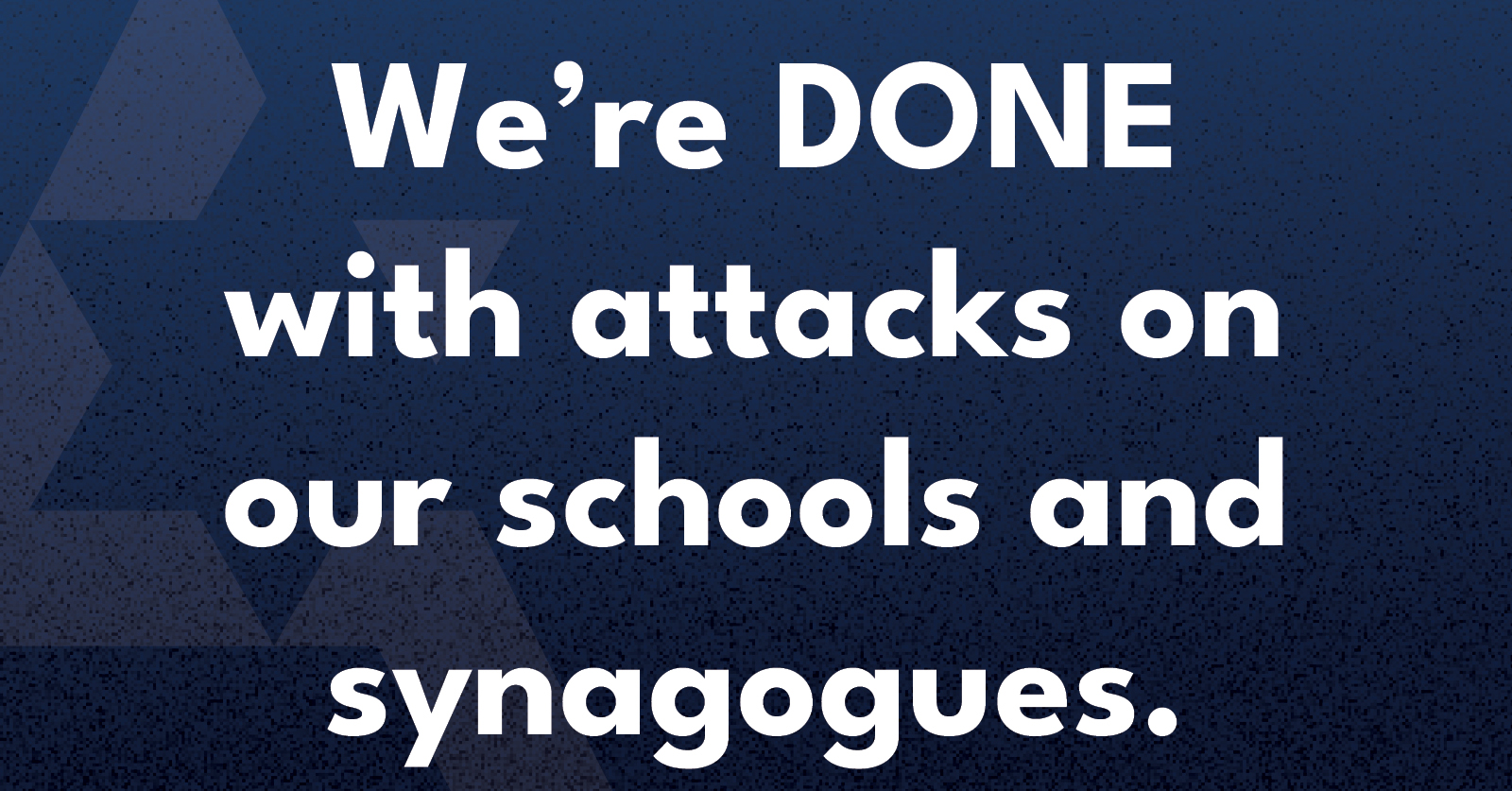
Antisemitism in Canada has moved beyond protests and politics; it is now entering classrooms and altering how Jewish children see themselves functioning within them.
A a university student I have observed the experience of my younger brother in grade eight as a Jewish student. Over the past few months, his school has been at the center of several deeply troubling incidents that have made him feel unsafe in our parks, community, and even his school. Swastikas were drawn around the community, in parks and ponds. Additionally, an older man, who claims to be a pro-Palestinian influencer, stood outside his predominantly Jewish school wearing a keffiyeh, filming a video which then circulated between students on TikTok.
This same man later showed up to our local Jewish community center in keffiyeh to allegedly watch his son play basketball where my brother and many of his classmates go for their lessons, basketball games, and Jewish events. These moments made him and his peers feel watched and targeted just for being Jewish. Local political representatives condemned the incidents and raised awareness about antisemitism, but the fear among students didn’t go away. The feeling of being targeted for simply existing has been taught to my brother, something my parents had tried their hardest to escape from.
Most recently, my brother was chosen to represent his school at a regional science fair. When one of the judges arrived wearing a keffiyeh, he froze. For many, including my brother after the incidents he has faced, the keffiyeh represents a political message. But even more so for my younger brother, it is tied to the fear and intimidation he had already experienced. He felt nervous, distracted, and unsure of how to act.
This is not about silencing political expression. It is about a child who came to share his ideas and left feeling uncertain and afraid. It is about the atmosphere forming in Canadian schools, where Jewish students are being made to feel targeted and unwelcome.
His school made an effort to address the incidents, but the impact is lasting. Posts on social media, much can be very vague at times about inclusion cannot fully undo the feeling of being singled out. A kind word from a teacher does not erase the fear that builds when threats are left unspoken but deeply felt.
I am writing this as a sister who watched her younger brother lose a moment that should have been filled with confidence and pride. He deserved to feel safe. So do all Jewish students in this country.
Moving forward, schools must take concrete steps to protect all students. Antisemitism cannot only be addressed when it becomes violent or overt. It must also be recognized when it appears as intimidation, symbolic targeting, or political messaging that creates fear among students. Children should never have to question whether they are safe in their own classrooms or community spaces.
Events that are meant to support and celebrate students must remain focused on them. Individuals who feel the need to bring political symbols or messages into school grounds or children’s events should not be welcomed in those spaces. Schools must make it clear that their environments exist to support learning, safety, and inclusion, not to host agendas that can intimidate or isolate students.
Administrators and educators must develop clear guidelines for identifying and responding to antisemitic behavior in all its forms. This includes strengthening security measures, offering ongoing staff training, and engaging directly with Jewish families to understand their concerns. Inclusion is not a one-time statement. It is a responsibility that must be reflected in everyday decisions and actions. No child should ever feel unsafe or unwelcome because of their identity.
The author is a Campus Media Fellow with HonestReporting Canada and Allied Voices for Israel who lives in Toronto.

